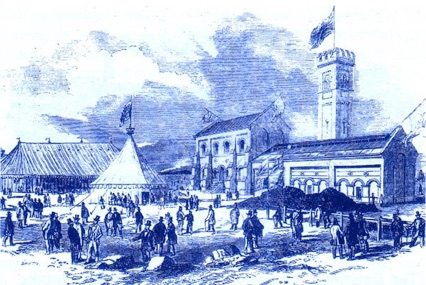Seething Wells Filter Beds – An Overview
Seething Wells Filter Beds is a historic site located in Kingston upon Thames, England. The filter beds were built in the late 19th century and were used for the treatment of sewage for over 100 years. Today, the site serves as an important educational resource and a haven for wildlife.
History of the Seething Wells Filter Beds
The Seething Wells Filter Beds were built in 1894 as part of the Kingston upon Thames sewage treatment system. The filter beds were used to treat sewage by allowing it to flow through beds of gravel, sand, and coal, which acted as a natural filter. The treated water was then discharged into the River Thames.
The filter beds were in use for over 100 years, until the early 2000s when a new treatment plant was built nearby. Despite being decommissioned, the filter beds were not demolished, and instead were preserved as a historical site.
Ecological Importance of Seething Wells Filter Beds
Today, the Seething Wells Filter Beds serve as an important ecological site. The site is home to a variety of plant and animal species, including rare and protected species such as great crested newts and kingfishers. The site also serves as an important educational resource, with guided tours and educational programs available for school groups and the general public.
Conservation Efforts at Seething Wells Filter Beds
The Seething Wells Filter Beds are a designated Local Nature Reserve and Site of Borough Importance for Nature Conservation. The site is managed by the local council in conjunction with a group of dedicated volunteers, who work to preserve and protect the site’s important ecological and historical values.
Visiting Seething Wells Filter Beds
The Seething Wells Filter Beds are open to the public and can be accessed via a network of footpaths and bridges. Visitors can explore the site on their own or on guided tours, which are available by appointment. The site also offers educational programs for school groups and the general public.
Conclusion
Seething Wells Filter Beds is a historic and ecologically important site in Kingston upon Thames, England. The site offers visitors the opportunity to learn about the history of sewage treatment and the importance of conservation efforts. With guided tours and educational programs, it is an excellent resource for school groups and the general public to learn about the ecology and history of the area.
